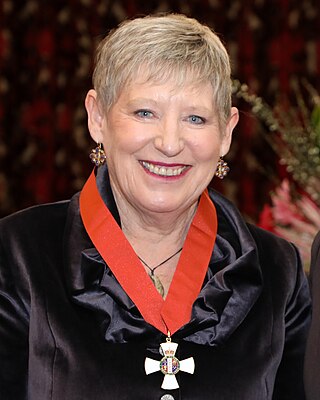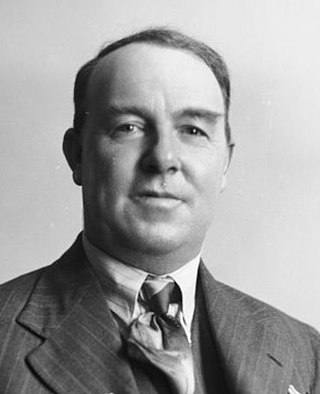
James Patrick Anderton was a New Zealand politician who led a succession of left-wing parties after leaving the Labour Party in 1989.

Lianne Audrey Dalziel is a New Zealand politician and former Mayor of Christchurch. Prior to this position, she was a member of the New Zealand Parliament for 23 years, serving as Minister of Immigration, Commerce, Minister of Food Safety and Associate Minister of Justice in the Fifth Labour Government. She resigned from Cabinet on 20 February 2004 after apparently lying about a leak of documents to the media, but was reinstated as a Minister following Labour's return to office after the 2005 election. She resigned from Parliament effective 11 October 2013 to contest the Christchurch mayoral election. The incumbent, Bob Parker, decided not to stand again. She was widely regarded as the top favourite and won with a wide margin to become the 46th Mayor of Christchurch.

Neville George Pickering was a New Zealand politician of the Labour Party.

John Walton Beanland was a building contractor and Mayor of Christchurch from 1936 to 1938.

The 2010 Christchurch mayoral election is part of the 2010 New Zealand local elections. On 9 October 2010, elections were held for the Mayor of Christchurch plus other local government roles. Incumbent Bob Parker was re-elected.

The 2013 Christchurch mayoral election was part of the New Zealand local elections and was won by former MP Lianne Dalziel. The elections were held on 12 October 2013 for the Mayor of Christchurch plus other local government roles.

The 2016 Christchurch mayoral election was part of the New Zealand local elections held on 8 October. The incumbent mayor, former Labour MP and government Minister Lianne Dalziel, who was first elected in the 2013 mayoral election was reelected, winning a commanding 83.9% of formal votes cast in the poll. However New Zealand's local government elections in 2016 were characterized by a nationwide low participation rate which saw only 41.8% of enrolled voters cast a ballot in the election. Christchurch's turnout rate was particularly low with only 38.3% of enrolled voters actually voting, down from 52.2% in 2010.

The 1935 Christchurch City mayoral election was held on 8 May. The incumbent, Dan Sullivan of the Labour Party narrowly beat the conservative candidate, Hugh Acland, a surgeon and World War I veteran. The election attracted nationwide attention, as Christchurch was a Labour-stronghold and due to Acland's widespread popularity, it was regarded as a test whether Labour could potentially win the November 1935 general election.

The Christchurch mayoral by-election in 1936 was triggered by the resignation of the incumbent, Dan Sullivan, who had been appointed cabinet minister after the Labour Party winning the general election in November 1935. The election was won by John Beanland of the Citizens' Association, who narrowly beat the Labour candidate.

The 1959 Wellington City mayoral election was part of the New Zealand local elections held that same year. In 1959, elections were held for the Mayor of Wellington plus other local government positions including fifteen city councillors. The polling was conducted using the standard first-past-the-post electoral method.

The 1980 Christchurch mayoral election was part of the New Zealand local elections held that same year. In 1980, election were held for the Mayor of Christchurch plus other local government positions. The polling was conducted using the standard first-past-the-post electoral method.

The 1950 Christchurch mayoral election was part of the New Zealand local elections held that same year. In 1950, election were held for the Mayor of Christchurch plus other local government positions. The polling was conducted using the standard first-past-the-post electoral method.
The 1959 Christchurch mayoral election was part of the New Zealand local elections held that same year. In 1959, election were held for the Mayor of Christchurch plus other local government positions. The polling was conducted using the standard first-past-the-post electoral method.

The 1971 Christchurch mayoral election was part of the New Zealand local elections held that same year. In 1971, elections were held for the Mayor of Christchurch plus other local government positions. The polling was conducted using the standard first-past-the-post electoral method. The incumbent, Ron Guthrey of the Citizens' ticket, was defeated by the Labour Party candidate Neville Pickering.

The 1983 Christchurch mayoral election was part of the New Zealand local elections held that same year. In 1983, election were held for the Mayor of Christchurch plus other local government positions. The polling was conducted using the standard first-past-the-post electoral method.

The 1986 Christchurch mayoral election was part of the New Zealand local elections held that same year. In 1986, election were held for the Mayor of Christchurch plus other local government positions. The polling was conducted using the standard first-past-the-post electoral method.

The 1989 Christchurch mayoral election was part of the New Zealand local elections held that same year. In 1989, election were held for the Mayor of Christchurch plus other local government positions. The polling was conducted using the standard first-past-the-post voting method.

The 1938 Christchurch City mayoral election was held on 11 May. The incumbent, John Beanland of the Citizens' Association, failed to get the nomination by his party and the surgeon Dr. John Guthrie was nominated instead. The Labour Party nominated Robert Macfarlane. Both the Labour and conservative candidate had been members of Christchurch City Council for some years. Macfarlane narrowly won the mayoralty.

The 1941 Christchurch City mayoral election was held on 17 May. The incumbent, Robert Macfarlane of the Labour Party, did not stand for re-election as he wanted to serve in WWII. Four candidates stood and Ernest Andrews of the conservative Citizens' Association was successful. Andrews was installed on 28 May 1941.

The 1944 Christchurch City mayoral election was held on 27 May. The incumbent was Ernest Andrews of the conservative Citizens' Association. Andrews was challenged by his predecessor, Robert Macfarlane, of the Labour Party, who had returned from active war service. Andrews won by a large majority.













